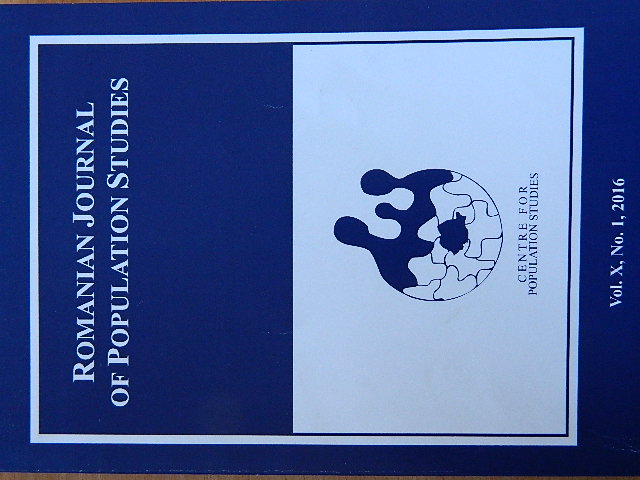Pathways to Childlessness among Women and Men:
Is the Romanian Case Unique or Common
in the Eastern Part of Europe?
Pathways to Childlessness among Women and Men:
Is the Romanian Case Unique or Common
in the Eastern Part of Europe?
Author(s): Cristina FaludiSubject(s): Social Sciences
Published by: Centrul de Studiere a Populaţiei
Keywords: childlessness; women; men; Romania; Bulgaria; Russia
Summary/Abstract: This paper investigates the determinants of childlessness among men and women from Bulgaria, Romania and Russia, using data on a sub-sample of 30- 49 years old respondents from the first wave of Generations and Gender Survey (2004-2005). For each country, two models of logistic regression were conducted to contrast childless men and women with fathers and mothers. Covariates comprising background and work related characteristics, early life course variables, attitudes and values were used in the regression models. The outcomes of the multivariate analysis revealed a set of similarities, both from the gender and country perspective as well. Childless women and men from all three countries have younger ages and acquired a higher level of education compared with mothers and fathers. In the same time, childless people originated from families with a unique child, and claimed secularized attitudes and values. However, other covariates point at different roads leading to childlessness in the three Eastern European countries. In Romania, women who grew up in urban areas, hired in top jobs positions and who attended more often religious services are more likely to remain childless than women from villages, holding blue collar jobs or being unemployed, and who are less religious. Instead, men with lower levels of education and less prestigious jobs were more likely to remain childless, compared with men with a university degree and with a top job position. In Bulgaria, men whose mother is more educated and women whose father held a better job have a higher propensity to remain childless. In Russia, childlessness is more prevalent among less successful men, with a lower level of education and with an unemployment status. Beyond the similarities in the road to childlessness between gender and countries, in Romania, the effect of significant factors on childlessness is more accentuated for women than for men. Also, it seems the diffusion of childlessness in Romania is related to more privileged women and less successful men. Bulgarian and Russian results are more nuanced by gender.
Journal: Romanian Journal of Population Studies
- Issue Year: 10/2016
- Issue No: 1
- Page Range: 133-156
- Page Count: 24
- Language: English
- Content File-PDF

